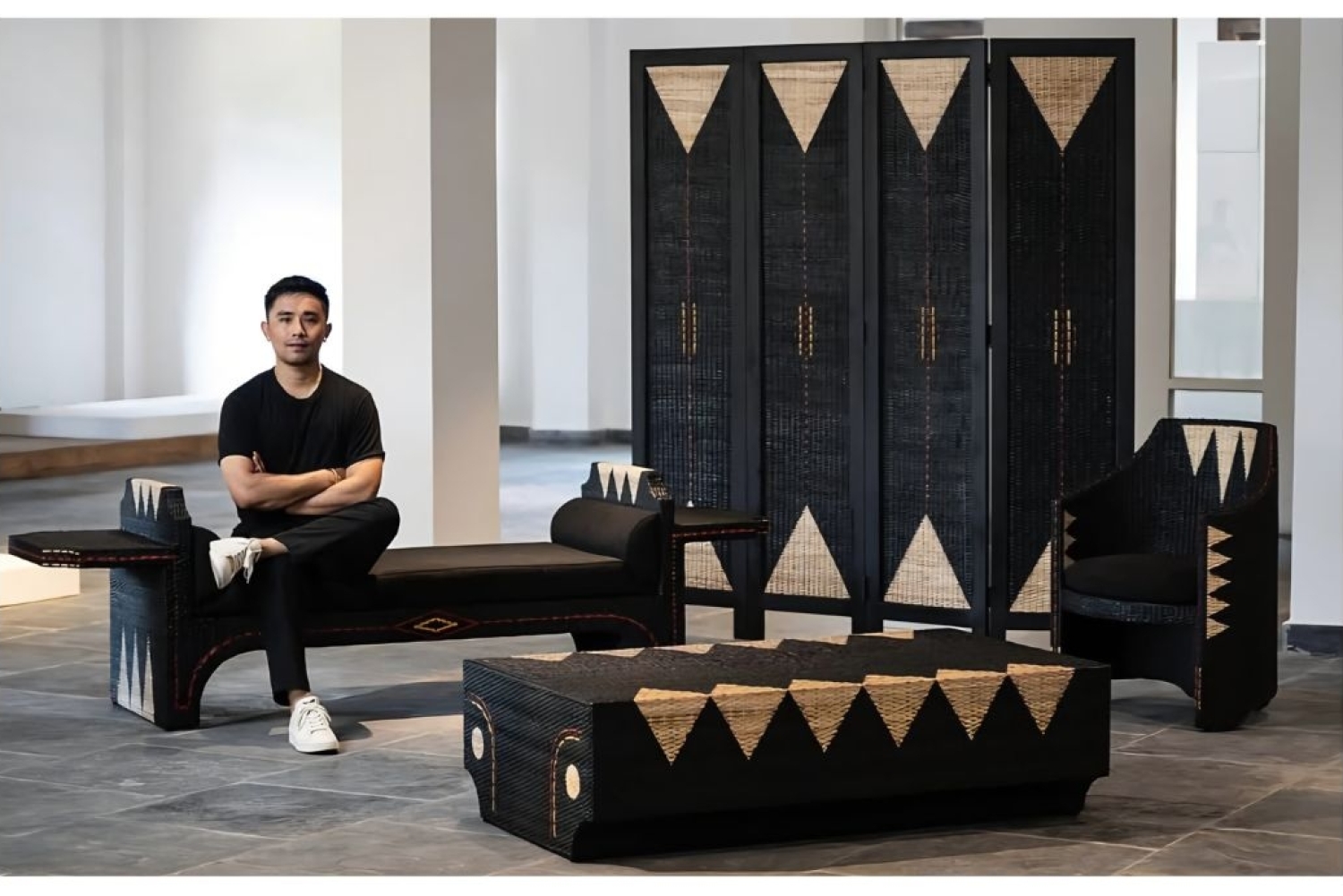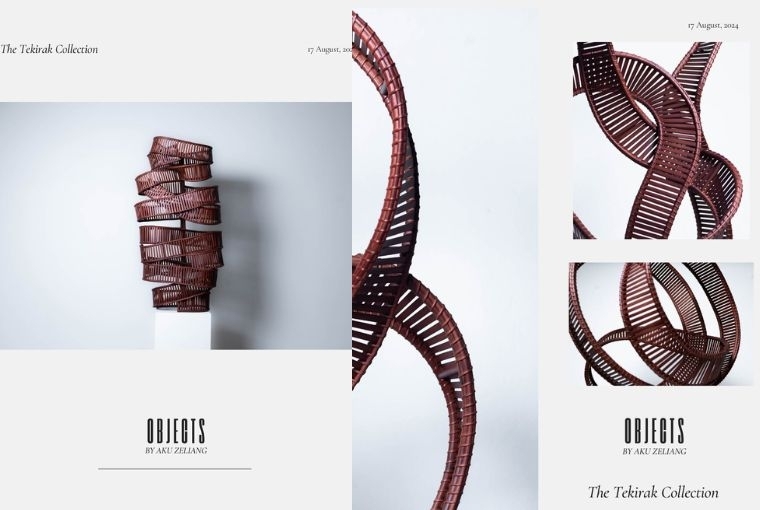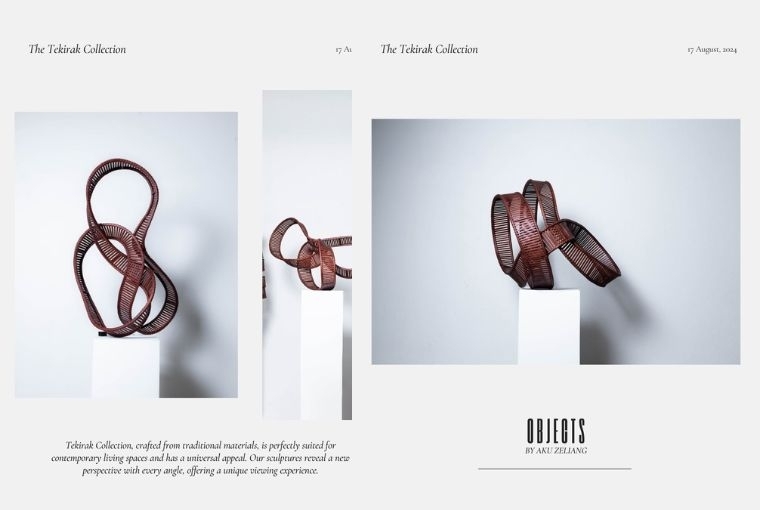

Aku Zeliang is a Nagaland-born designer who has emerged as a leading voice in India’s sustainable design movement. As the founder of Urra Design and creative director of Cane Concept, Aku seamlessly blends the rich craft heritage of Northeast India with contemporary design. Being a second-generation designer – his mother, Jesmina Zeliang, pioneered modern Naga textiles – Aku grew up immersed in artisanal traditions. This early exposure instilled in him a deep respect for indigenous craft and a moral duty to spotlight Northeast Indian artisans on the national stage. Today, Aku’s work ranges from interior spaces to sculptural furniture, all informed by a commitment to sustain- ability and cultural preservation.
ROOTED IN NORTHEAST HERITAGE AND CRAFT
Raised in a region celebrated for its diverse artisan history, Aku Zeliang’s journey has been profoundly shaped by his roots. ‘Working with different communities from this part of the world has been a core factor of my work,’ he notes, crediting his upbringing in Nagaland for his collaborative ethos. From a young age, he accompanied his mother to craft exhibitions, absorbing the beauty of handloom textiles and traditional techniques.
This foundation set the stage for his mission to bring Northeast India’s crafts into the mainstream. Aku believes Indian design is undergoing a craft renaissance driven by renewed pride in diversity and heritage. ‘At a time when India is on the move... it comes as a moral duty to put crafts out there from the Northeast,’ he says, reflecting on the responsibility he feels to represent his region’s artisans and ensure their skills thrive in the modern era.

DESIGN PHILOSOPHY AND PROCESS
Aku’s design philosophy centres on embracing what is available and authentic. ‘One of my core principles has been to work with skills and resources we already have—indigenous materials in abundance—and to treat craft as a national treasure, ensuring that craft lives on and thrives,’ he explains. Rather than reinventing the wheel, he draws on time-honoured local materials like bamboo, cane, and indigenous textiles, elevating them through innovative form. His creative process often begins with thorough research and storytelling. Aku admits he is something of a history buff. ‘My process always involves going back to the books,’ he says, and he finds inspiration in everything from tribal jewellery motifs to other heritage art forms.
By delving into historical contexts and cultural narratives, he infuses each project with a sense of provenance. This research-driven approach, combined with constant experimentation, helps him evolve a signature style that feels both deeply rooted and refreshingly original.
SUSTAINABILITY AT HEART
Sustainability is at the core of Aku’s practice. He frequently works with eco-friendly, locally sourced materials like wild bamboo and rattan. More importantly, he views sustainability in holistic terms. ‘Sustainability to me has always been about impacting livelihoods and keeping traditions alive, not just making products with eco-friendly materials,’ he emphasizes. This ethos means that every project is also a community project – Aku collaborates closely with rural artisans across Northeast India, giving them continuous work that sustains their craft. By engaging artisans as partners rather than just workers, he builds trust and preserves invaluable traditional knowledge. This approach has enabled him to form artisan clusters in Nagaland, Assam, and beyond, creating what he calls small ecosystems of craft production. It is a model where design innovation and social responsibility go hand in hand.

TEKIRAK: SCULPTING SUSTAINABILITY
Aku’s recent Tekirak collection brilliantly exemplifies his sustainable design philosophy in action. The Tekirak series, sculptural furniture pieces woven from wild bamboo of Peren’s forests and hardy rattan, won him the EDIDA India 2024 award in the Sustainable Design category. What sets these pieces apart is their material: sturdy wild bamboo that is foraged responsibly and bent into contemporary art forms. Aku notes that Tekirak was an effort to bring cane and bamboo into the realm of collectable design art, and to do so accessibly. The collection’s sensitive sourcing and climate-conscious construction offer a novel approach to modern design by going back to our roots. It stands as a stellar example of how craftsmanship and environmental consciousness can inform each other, proving that vernacular materials can achieve high design.
Words Harita Odedara
Date 10-9-2025